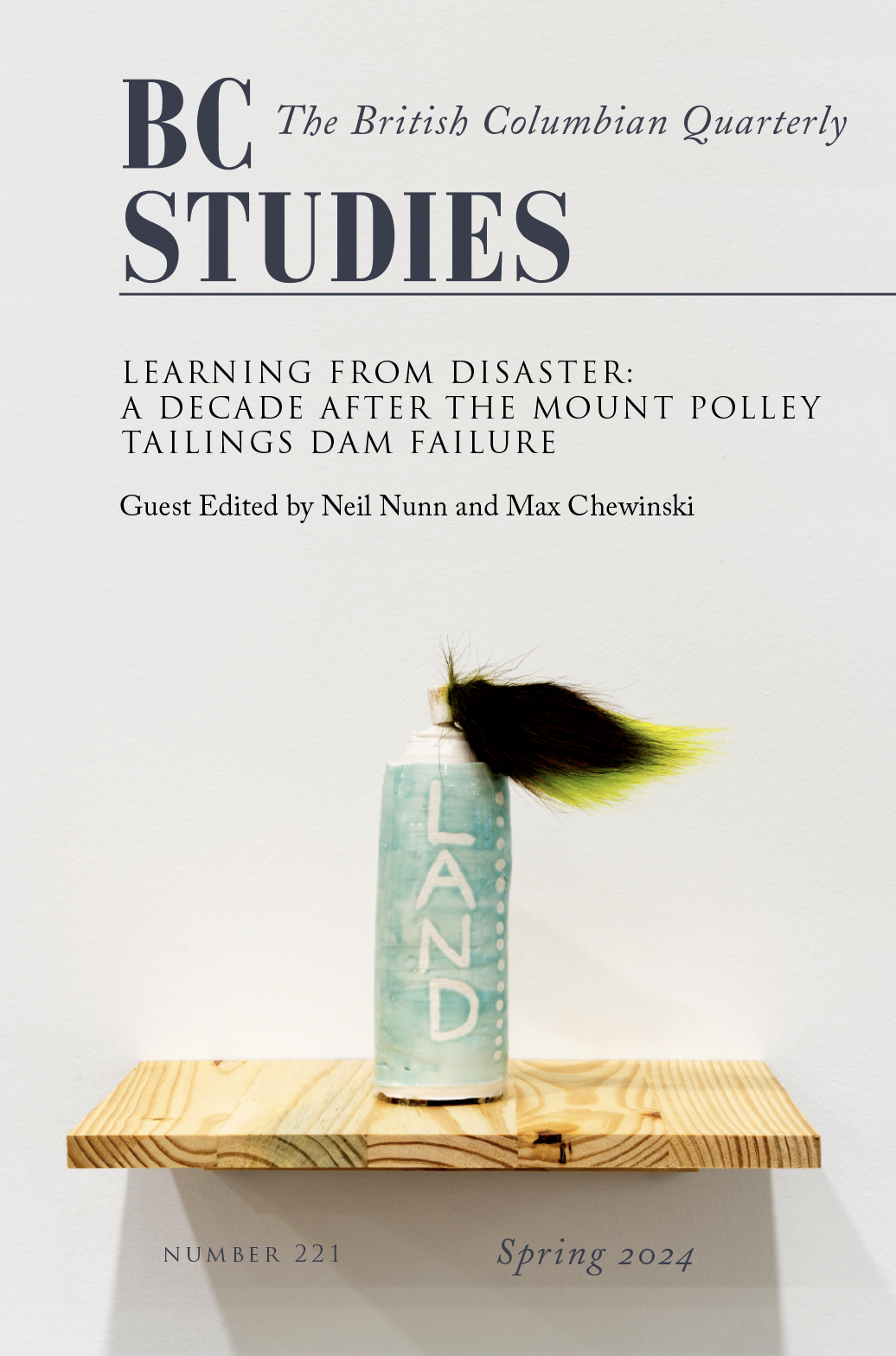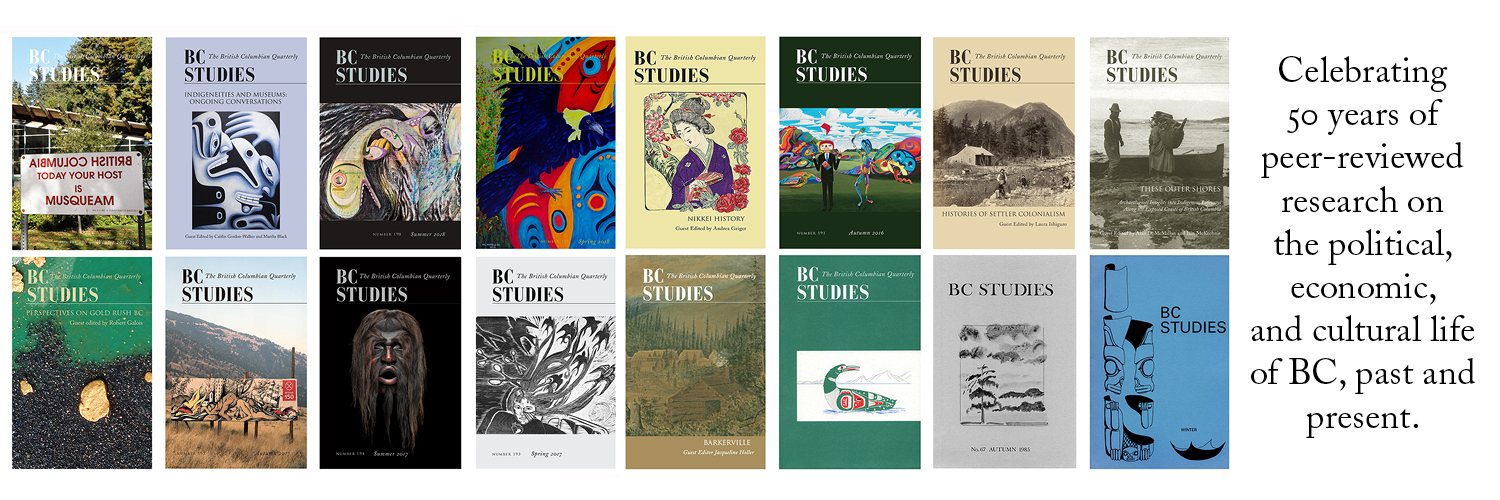An Absolute No to That!
An Interview with tsiqw xwéxwne – Red Hummingbird Judy (Manuel) Wilson, Ten Years after Mount Polley
DOI:
https://doi.org/10.14288/bcs.no221.199785Keywords:
mining, Mount Polley Mine , Secwepemc, UNDRIP (United Nations Declaration on the Rights of Indigenous Peoples) , colonialism and resistance , disaster response, protestAbstract
Judy (Manuel) Wilson/tsiqw xwéxwne (Red Hummingbird) is a long-time Secwépemc leader from Skat’sin te Secwépemc (Neskonlith Indian Band). She served in the leadership of her community for nearly twenty-five years: as Kúkpi7 (elected Chief) for sixteen years, and as a Council member for eight years. Her political experience also includes serving as the secretary treasurer of the Union of BC Indian Chiefs for several terms and with the First Nations Leadership Council in British Columbia, in addition to many Assembly of First Nations committees, some of which she still sits on today. In 2014, when the Mount Polley tailings pond breach sent an estimated 25 billion litres of toxic mining waste into Polley Lake, Hazeltine Creek, and Quesnel Lake, she immediately went to several Elders within the nation to ask what should be done. Their answer was to first protect their waterways, which led to evicting the company behind Mount Polley – Imperial Metals – from the territory (Secwépemculewc). The aim was to prevent another of the company’s then-projects, the Ruddock Creek zinc and lead mine, from jeopardizing the sacred watersheds at the headwaters of the Adams River, which flows into Little Shuswap Lake and into the South Thompson River. Armed with this eviction notice – and a new water declaration made by her community – she drummed her way into Imperial Metals’ offices in Vancouver. Now, in this edited interview with Dr. Emma Feltes (York University) ten years later, she reflects on the worst mining disaster in BC history and its significance for the Secwépemc people. Finally, she calls for a shift towards a “regenerative, Indigenous economy.”



